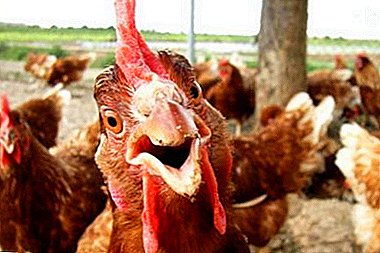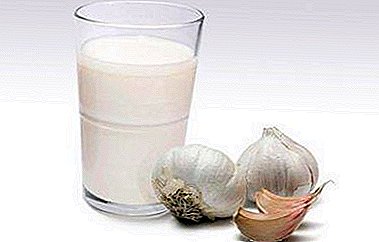
Not always a big chicken wins a tiny bug, pecking it out of the ground. It happens the other way around, when these same bugs attack poultry, quietly settling in a hen house and bringing their population to the amount needed for an attack.
In this case, the bird is in real danger. Indeed, among the attackers - the larvae of the beetle of the deadly and kozheeda. And this is not just bites - it is the introduction of a living tissue and settlement under the skin.
And what is most surprising: poultry can be attacked by beetles, which by their nature are designed to perform completely different functions - for example, to become a bait for fish.
Moreover, poultry can suffer from beetles simply by pecking a butterfly or a dragonfly. And since it is impossible to keep track of the ubiquitous chickens, you will have to hunt down beetles.
Bugs in the house - is it dangerous?
 <жуки представляют="" собой="" огромную="" опасность="" для="" всех,="" без="" исключения,="" обитателей="" птичника.="" особенно="" стоит="" опасаться="" личинок="" жуков="" кожееда,="" мертвоеда,="" мучного="" червя="" и="" червя-сосальщика.="" длина="" этих="" видов="" жуков="" составляет="" от="" 7="" до="" 9="" мм.="" они="" черного="" цвета,="" заводятся="" в="" негигиеничных="" помещениях,="" кучах="" помета,="" подстилке,="" которую="" очень="" давно="" не="" меняли.="" самка="" жука="" способна="" откладывать="" по="" 100-150="" яиц,="" в="" темных,="" дальних,="" самых="" грязных="" углах.="" а="" через="" недельку="" потомство="" появляется="" на="" свет="" и="" сразу="" принимается="" за="" трапезу.="">Beetles are very fond of heat. The higher the temperature of the environment, the more they grow, the more they eat and the more dangerous they become for birds. In the spring and summer, if this process, which is destructive for the bird, is not stopped in time, several generations of beetles can be found in the hen house.
<жуки представляют="" собой="" огромную="" опасность="" для="" всех,="" без="" исключения,="" обитателей="" птичника.="" особенно="" стоит="" опасаться="" личинок="" жуков="" кожееда,="" мертвоеда,="" мучного="" червя="" и="" червя-сосальщика.="" длина="" этих="" видов="" жуков="" составляет="" от="" 7="" до="" 9="" мм.="" они="" черного="" цвета,="" заводятся="" в="" негигиеничных="" помещениях,="" кучах="" помета,="" подстилке,="" которую="" очень="" давно="" не="" меняли.="" самка="" жука="" способна="" откладывать="" по="" 100-150="" яиц,="" в="" темных,="" дальних,="" самых="" грязных="" углах.="" а="" через="" недельку="" потомство="" появляется="" на="" свет="" и="" сразу="" принимается="" за="" трапезу.="">Beetles are very fond of heat. The higher the temperature of the environment, the more they grow, the more they eat and the more dangerous they become for birds. In the spring and summer, if this process, which is destructive for the bird, is not stopped in time, several generations of beetles can be found in the hen house.
 What can we expect from beetles? It is not the adults that are working for extermination, but their voracious larvae, which can significantly damage the bird herd.
What can we expect from beetles? It is not the adults that are working for extermination, but their voracious larvae, which can significantly damage the bird herd.
First of all, some types of beetles penetrate the skin of the bird and feed in such an enhanced mode (with muscles, fibers, and subcutaneous fats) that the bird itself does not get anything. And she gradually loses vitality.
Both adults and young animals can suffer from beetles. But the youngsters are the most defenseless - even grown-up, two-month-old, chicken bugs can seize in a matter of days, attacking the victim from the outside or from the inside.
Damage from beetles can be enormous - small pests can destroy all the stock of young stock that is available.
In chickens, ducklings, and goslings killed by beetles, it was possible to observe pierced skin on the chest, abdomen, and head. It should be noted that the holes were very wide and deep.
It is more difficult for them to cope with an adult bird. It all depends on how the population of beetles managed to "grow" in the hen house.
What diseases suffer?
 The beetles that settled in the poultry house are the causative agents of all the diseases and troubles associated with them, such as the death of a bird.
The beetles that settled in the poultry house are the causative agents of all the diseases and troubles associated with them, such as the death of a bird.
Once in the house, for a long time did not know cleaning, beetles feel themselves masters of the situation. Small and inconspicuous, they only spend some time in a dirty litter or heaps of excrement.
Penetrating into the body of a bird, beetles from the very first seconds begin their destructive activity.
If the bird is struck by the larvae worm, the source of the pathogen may be the infected bird itself, which scatters the eggs of the parasite beetle into the external environment.
Symptomatology
 Unfortunately, the appearance and introduction of beetles into the body of a bird is so imperceptible that most of the symptoms may indicate not the onset of the disease, but its lethal outcome.
Unfortunately, the appearance and introduction of beetles into the body of a bird is so imperceptible that most of the symptoms may indicate not the onset of the disease, but its lethal outcome.
However, if you pay attention to the fact that the birds have become nervous, they are worried about itching, they constantly stick their noses in their feathers and itch, if the young have some bleeding from the lint or feather cover, periodically, sound the alarm and take urgent measures. Beetles attacked the birds!
And again we want to draw your attention to the behavior of birds infected with worm larvae. The disease is called postogonymozom (this is the case when a bird can become infected from a butterfly) and lasts quite a long time.
In the first stage it can be overlooked. The bird looks fit and healthy. But, if the hens "pour" the eggs - this is the first and sure sign of the presence of the larva in the body of the bird. The first stage can last about a month.
 The breed of chicken Loman Brown, like absolutely any other bird, is endangered by beetles.
The breed of chicken Loman Brown, like absolutely any other bird, is endangered by beetles.If you follow this link //selo.guru/ptitsa/kury/porody/myaso-yaichnye/megrula.html, you will get a detailed overview of the rare breed Megrul.
In the second stage the bird is no longer able to nestle, although it sits on nests for a long time. General condition - lethargy, loss of appetite, apatite. The belly may noticeably increase, and the gait will lose stability. The duration of this stage is no more than a week.
On third stage bird fever, gait the same shaky, full of fatigue. Back extended, cloaca bulged out. After 2-3 days the bird dies.
Diagnostics
The diagnosis is established on the basis of the analysis of the general condition of the bird, visually, or on the basis of a thorough examination of the room in which the bird is kept.
To most accurately determine whether there are bugs in the chicken coop, you can put pieces of bright linoleum under the cells and nests. Beetles or their larvae will crumble out of the nest. And on a light background it will not be difficult to notice them.
Is it somehow being treated?
 Usually, a bird affected by bugs is culled. But such an extreme step is inappropriate, if the case is not too running.
Usually, a bird affected by bugs is culled. But such an extreme step is inappropriate, if the case is not too running.
There is a chance to save the bird from painful death by applying the disease at an early stage. anthelmintic drugs. They effectively destroy the larvae of beetles. Carbon tetrachloride perfectly copes with parasitic larvae and completely releases the bird's body from them.
Effective against beetles and hexamine.
Preventive measures
 First and foremost: house needs to be kept clean. Remember, please, this simple truth - in a clean henhouse, bugs do not start.
First and foremost: house needs to be kept clean. Remember, please, this simple truth - in a clean henhouse, bugs do not start.
In addition, the house is better to be located away from too wet, wetlands, its successful and safe location - in dry and elevated areas.
For preventive purposes, it is necessary to periodically disinfect the house, paying great attention to the perches and nests.
According to experienced poultry farmers who drove out beetles from their farms, nest treatment with aerosol preparations for extermination of beetles gives excellent results.












